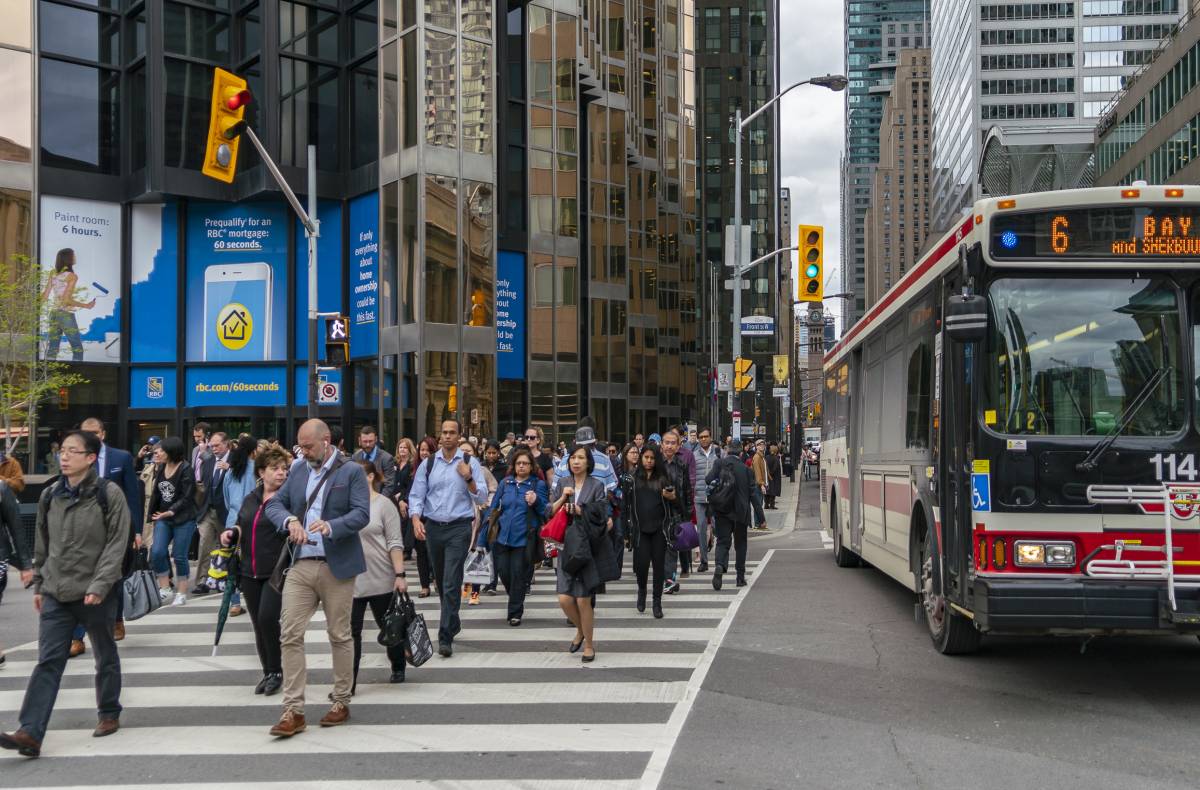Toronto’s economy has been consistently growing over the last decade, yet large groups of residents have been unable to tap into this rising prosperity. Women, Indigenous, Black, and other racialized communities, and newcomer immigrants, in particular, are over-represented among the unemployed and the working poor.
Despite significant investments in skills development and employment services — approximately $1 billion a year by the Government of Ontario — structural barriers and challenges persist in the Ontario workforce system, and it remains challenging for people to navigate.
The Metcalf Foundation’s Inclusive Local Economies program has long been focused on these issues, and in 2018, we partnered with JPMorgan Chase to explore the potential of creating a workforce funder collaborative for the Greater Toronto Area as another means of addressing the ongoing challenges many in the workforce face.
What is a workforce funder collaborative?
Workforce funder collaboratives invest in strategies that bring about more access to and better jobs, and ultimately, stronger communities. Collaboratives bring together funders to do what a single funder may be unable do, and are designed to respond to local economic conditions, priorities, and opportunities.
Over the last 15 years, American funders have strategically invested in systems change through workforce funder collaboratives. And while there are currently over two dozen workforce funder collaboratives in the United States, none had been established in Canada.
Building partnerships and learning together
We saw the potential for impact of a workforce funder collaborative for Toronto, and worked with JPMorgan Chase to reach out to philanthropic funders to be part of the process to design and build a model for Toronto.
Six funders took part in a 10-month planning process: The Counselling Foundation of Canada, JPMorgan Chase, Metcalf Foundation, Ontario Trillium Foundation, TD, and United Way Greater Toronto. Together, we identified our shared interests and strategic priorities and had the opportunity to go on a three-day study tour to Chicago and Baltimore to learn from funder collaboratives in those regions.
Launching the Toronto Workforce Funder Collaborative
Toward the end of 2019, the funders completed the planning process, agreed to a three-year commitment of funding and participation, and finalized the structure of the newly established Toronto Workforce Funder Collaborative — the first of its kind in Canada.
In March 2020, Surabhi Jain became the founding Executive Director of the Toronto Workforce Funder Collaborative, bringing over 15 years of experience designing and implementing innovative workforce development and adult education programs in the United States. Later that year, the WES Mariam Assefa Fund joined the collaborative as the seventh member. In November 2020, the Toronto Workforce Funder Collaborative released its first call for proposals to support organizations testing and implementing partnerships to address root causes of local workforce challenges, and subsequently approved its first three grants to Building Up, East Scarborough Storefront, and POV.
Testing new approaches to grantmaking
Collectively, the funders made an decision early on to experiment, learn, and iterate while testing out new and different approaches to grantmaking through the Toronto Workforce Funder Collaborative. Another priority for the funders was to build the capacity of the funded organizations.
As a result, the experience provided to the first round of grantees was quite unique. Grantees were provided up to six months to further refine or completely reframe their project strategy, with Surabhi working closely with them to hone their goal and strategy, and encouraging them to be focused and specific in how their approach will have lasting impact on their identified workforce challenges.
Organizations then had up to 18 months to implement their strategy, with Surabhi providing guidance and support to overcome roadblocks along the way. The organizations are still currently in the midst of this work, but early feedback has been positive for the new approach:



